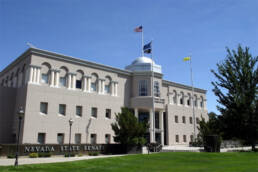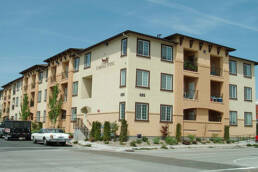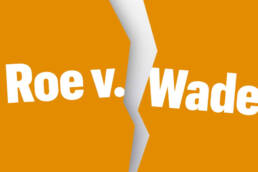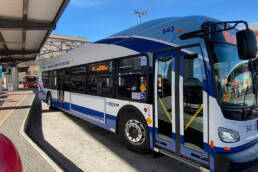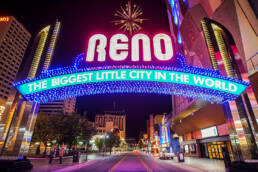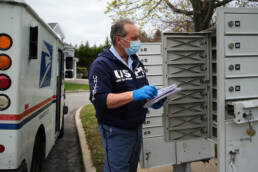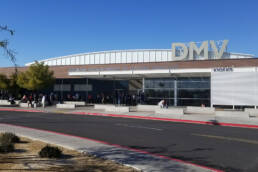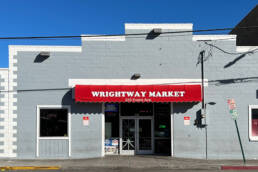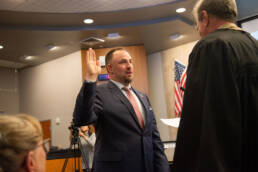In 2019 RTC notified the property owner of 961 and 999 South Virginia Street in Midtown of the acquisition of two temporary construction easements through eminent domain for the Virginia Street Bus Rapid Transit Extension Project. A driveway providing access to the parcel at 999 South Virginia Street was eliminated and never returned following the temporary construction.
The “taking clause” of the 5th Amendment to the United States Constitution says “nor shall private property be taken by the government for public use without just compensation to the property owner.”
RTC maintains “it was not necessary to obtain an easement or exercise eminent domain to eliminate the driveway because the entrance to the driveway was already in the public right-of-way and the owners had no ownership interest in it.”
This position has caused unnecessary litigation, confusion for the appraiser, and obvious violation ni taking private property by a government agency (RTC) without compensation. RTC feels since they have the public right-of-way they can take – at will – private property without just compensation.
Imagine if this were true what legal entanglements would ensue between government and private landowners!
In an earlier Nevada Supreme Court case that set the precedent for these types of actions [Dept. of Highways v. Linnecke, 86 Nev. 468P.2d8 (1970)], the Court recognized the right to obtain severance damages for harmful changes to one’s access to the public highway. The court noted that the “property right essentially damaged its respondent’s easement of access from his property to the abutting highway and to the free and continuous use thereof.
The right of ingress and egress attaches to the lot and is a right of property as the lot itself, rather than a mere interest possessed by the public in general in the use of public roads.”
“An act of municipality for the benefit of the public that substantially impairs such easement is damage to the lot itself within the meaning of the State Constitution.”
NI SUMMARY, the RTC rented a driveway from a private property owner for a “temporary construction easement” and never returned the driveway: they completely eliminated the driveway access to Virginia Street! Nor did they compensate the owner for taking it. They didn’t even give him a hug! Even though the property is in one of the desirable areas for commercial properties in the city, the sales value and highest and best use of the property has substantially been diminished by RTC taking the driveway.
Is it okay for the RTC to violate the constitution and take private property without compensation?
MIDTOWN RAISED CENTER DIVIDER: You may have encountered the concrete center divider and round-
about in Midtown. When both were designed, RTC’s engineers apparently did not take into account the ultimate effect on businesses or property owners in the area. Recently, a petition was signed by a large number of the land owners and business owners throughout Midtown asking for the center median to be removed, asserting that it is unsafe and has a negative impact on their operations. Property has been damaged that oth- erwise was never harmed prior to the median’s implementation. The concrete median restricts a left turn into many business driveways and blocks left turns at several intersections making access to businesses and residential neighborhoods complicated. In January 2017, before construction, the RTC Board met to vote on a design modification that would remove the divider and restore a center turning lane that was already in place. The few business owners present who opposed the concrete median said they were not notified of the meeting. Of others attending the meeting who favored the divider, few fi any had any business interests ni the area or did not live in the area but liked the esthetics of wide sidewalks and trees, not concerned with access to businesses or neighborhoods. The Board appeared frustrated with having to send plan modifications back to the City Council again for approval. The choice to leave the center divider was left to the two Reno City Council people on the RTC Board, Jardon and McKenzie (no longer on the Council or RTC Board).
Safety Concerns: It should be noted that no one at the meeting addressed safety concerns. Minutes of the meeting do not indicate the representation of any Reno emergency services: fire department, ambulance service, hospitals, police, etc. The overall traffic design of Midtown is so restrictive due to the concrete divider and narrow traffic lanes that emergency vehicles could lose valuable life-saving time trying to get to an emergency. A loud siren from an emergency vehicle signals all traffic to move over at once to allow an ambulance, a fire truck or a police vehicle to quickly pass to the site where the emergency is occurring. With the frequent heavy traffic congestion in Midtown and nowhere to pull over to allow emergency vehicles to pass, and the concrete barrier in the median preventing the use of the opposite roadway, a building or car fire, a health crisis, a fight or social crisis, or other disaster could result before help could get close enough to be of any benefit.
Rapid fire department response to a fire would save lives and property. Rapid police response to a brawl, firearms incident, or traffic accident would save lives. Rapid ambulance response to a car or motorcycle accident,
unexpected arrival of a baby, heart attack or hemorrhage, etc., would save lives. The current design with the raised median dramatically increases the risk factor of an unfavorable outcome from these and other types of emergencies.
When you hearthe loud blast from an emergency ambulance or fire truck vou know to pull over be.
cause it could be saving a life – And It’s The Law!
This did not appear to be taken into consideration in Midtown!





